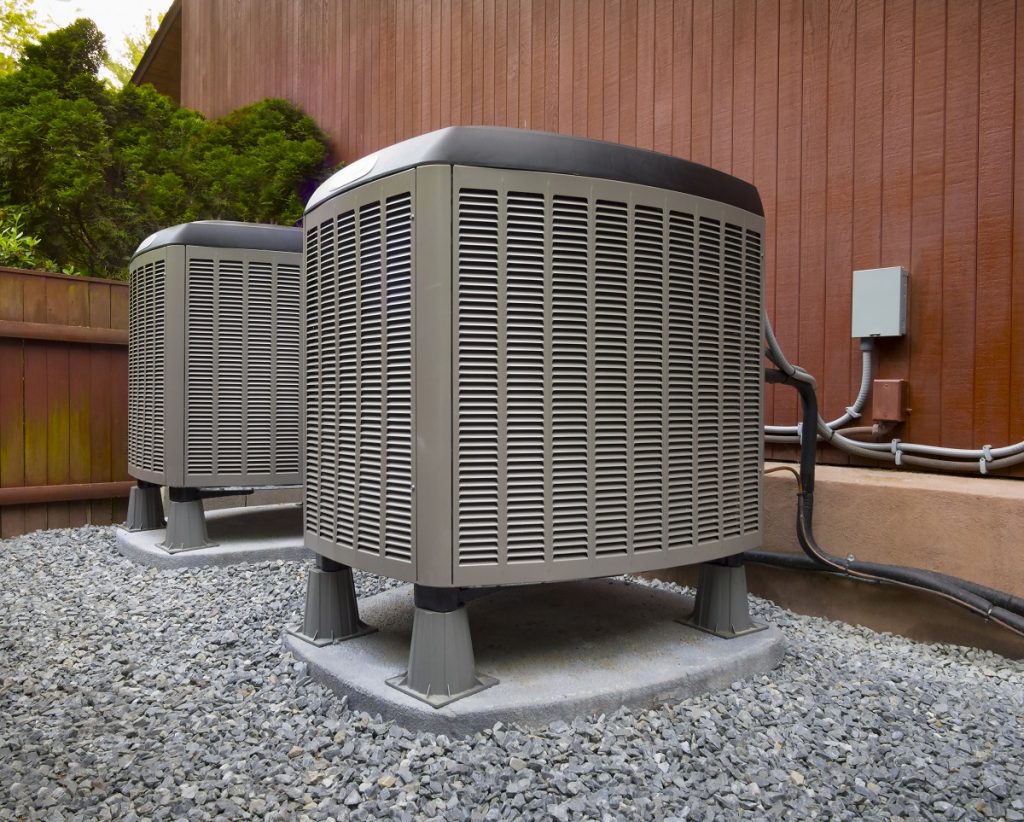Most of us are familiar with many commercial HVAC equipment for heating and cooling, such as gas furnaces, boilers, electric baseboard heat, and split system air conditioners. But some might not think of heat pumps as an option for commercial establishments. Heat pumps do not work the same as other heating and cooling systems and offer a whole other set of benefits, as you shall find out here.
How does a heat pump work?
Heat pumps operate the refrigeration cycle similar to most air conditioning systems. What makes it different is the configuration on the refrigerant loop that makes the refrigerant cycle go both ways.
In systems using the refrigeration cycle, heat is transferred by circulating the refrigerant through a cycle involving evaporation and condensation, while a compressor is pumping the refrigerant between a pair of heat exchanger coils. In one of these coils, the refrigerant evaporates at low pressure to absorb heat from its surroundings. The compressor would then compress the refrigerant as it makes its way to the other coil where it will condense at high pressure, releasing the heat it absorbed earlier.
Air conditioners and refrigerators both use this system, but operates in cooling mode only. The evaporator coil is located inside the refrigerator box or indoors for an AC unit, where it absorbs heat, and then transfers the heat outside where the condenser coil is located. A heat pump, on the other hand, operates on a fully reversible system. When the weather is warm, a heat pump will absorb the heat from the air indoors and moves it outdoors to cool the indoor space. In cooler weather, it would then provide heat to an indoor space by removing heat from the outdoor air to move indoors.
There are various types of heat pumps and they can be fitted with different accessories.
What are the benefits of commercial heat pumps?

You might pay commercial heat pump installers quite a sum, but you could save a lot and even earn incentives by using heat pumps.
Lower your energy bill. According to the United States Energy Department, heat pumps could heat up a space with up to 3 times more heat energy than the electrical energy it uses. Less electrical energy consumed would mean greatly reduced energy bills.
Low maintenance and repair costs. Since a heat pump can be used for both heating and cooling, there will be only one system to maintain and repair in case it malfunctions.
Environmentally-friendly. Heat pumps only use electricity and do not consume fossil fuels to generate heat, so you would not have to burn oil or gas for heating, which would be otherwise harmful to the environment.
Incentives. Governments around the world offer incentives, subsidies and even tax credits for homeowners and businesses who opt for more environment-friendly equipment, and having a heat pump can qualify you for this.
High safety levels. Heat pumps are a lot safer than conventional systems that are at high risk of fire and gas leaks. Water in places with heat pump systems is also likely to be heated to less-scalding temperatures, reducing the possibility of burns.
Heat pumps are a very practical option for commercial establishments. Aside from being efficient in cooling and heating spaces, they can also be a more cost-efficient, greener and safer option compared to most HVAC systems.

